
The hidden power of your mind - Survival begins in the head (Psychology of survival)
👉 The key facts from this guide
- Your attitude is crucial for survival - stay positive!
- Train your mind as well as your body, for example through meditation.
- Accept and tame fears instead of suppressing them.
- Develop clear decision-making strategies for tricky situations.
- Group dynamics and cohesion provide strength.
- Reflect on extreme experiences and seek help if necessary.
Please imagine yourself out in the wilderness, far away from anything that resembles civilization.
A challenge you seek, but when it's there, doubt may grip you.
You know your equipment is top-notch, but is your mind also set to survival mode?
Honestly, the best equipment won't do you any good if panic paralyzes you.
But you are not alone with this concern - the issue of a weak psyche in crucial moments is widespread.
The solution lies deeper than you think - inside of you.
Together, we will discover how you tackle this task with mental sharpness and a positive attitude.
Get ready for a journey into the self - because your strongest survival tool? That's you!
The Core of Survival Psychology - More than just Thoughts
What is survival psychology?
Let's take a deep breath and dive into the nitty-gritty. The topic of "survival psychology" - doesn't that sound like a branch of science for extreme researchers?
But please believe me, this topic concerns everyone who finds themselves thrown back on themselves in nature.
Survival psychology refers to the study of the psychological processes that individuals experience in extreme situations. It deals with patterns of behavior, thought processes, emotions, and strategies for survival in crises.
So: It's about mental resilience and the ability to make wise decisions even under pressure.
Because let's be honest, there are only a few thoughts between encountering a bear and getting lost in the woods.

The Role of Attitude in Survival
You know the saying: "It's all a matter of attitude." I'm telling you that hits the nail on the head.
A positive, solution-oriented attitude can make the difference between life and death.
The mindset is the steering wheel with which you navigate your thoughts and emotions in the rough sea of the struggle for survival.
Keeping a cool head
In the wilderness, stress and fear can be your best friends - or worst enemies. It depends on how you handle them.
According to John Leach, a pioneer in survival psychology, the "disbelief response" describes the reaction that most people exhibit in unexpectedly threatening situations.
They have difficulties integrating the experience and recognizing the threat, which impairs their ability to make quick, thoughtful decisions.
About 80% of people in a crisis are "dull and confused," which impairs their rational function and leads to reflexive, almost mechanical behavior. - John Leach
Remember the last time when suddenly the path could no longer be found:
- Stress can lead to overcompensation - you run aimlessly in tunnel vision instead of stopping and thinking.
- Fear can paralyze you - you become the rabbit in front of the snake.
Here's the trick: Use stress to drive you, but never let it control you. Transform fear into respect and caution, instead of paralysis.
What is the "Survival Stress Reaction"?
The Survival Stress Reaction is a complex aspect of human behavior that occurs in extreme survival situations.
This reaction, which originates from ancient primal stressors in our brain, can affect both our physical and mental stability.

Under stress, people can enter a state of tension that limits their ability to process information and leads to a phenomenon called "tunnel vision," where they perceive their surroundings only very narrowly.
This can lead to them overlooking important resources that are available and potentially becoming a victim of circumstances.
It is important to find the balance between tension and relaxation in such moments to enable effective decision-making and maintain control over the situation.
Techniques for Mental Strength
Visualization is not hocus-pocus
Imagine successfully starting a fire or building a shelter. The good thing is: Your brain often can hardly distinguish between real and imagined.
This type of mental training builds confidence and sharpens your skills before you even step outside.
I never get tired of mentally rehearsing how to come out victorious from every tricky situation before each tour.
Mental Training - your secret weapon
Here are a few suggestions that can already help in advance:
- meditate daily: When the flood of thoughts occurs, learn to steer them.
- affirm positively: Tell yourself you can do it - and eventually, you will believe it.
- keep a diary: Write down your fears, and suddenly, they become small and manageable.

Just as you train your muscles, you should also keep your mind mentally fit.
This is the equipment to come out of every adventure alive.
Believe me, I have used these methods myself and they make the difference between a mind full of worries and one full of solutions.
When Fear Comes - Learn to Tame It
How do you react when you suddenly hear rustling in the undergrowth?
Maybe your stomach tightens, your hands get sweaty, your heart starts racing.
Fear is a primal reaction (and it's good that it is), and it can paralyze you - or drive you forward.

Remember the last time you were in a tight spot. What helped you stay calm?
Here are some strategies to combat panic mode:
Slow, deep breathing is more than just a cliché in stressful situations, it is your anchor. A technique that I apply time and time again:
- Breathe in deeply through the nose for four seconds.
- Hold your breath for four seconds.
- Breathe out through the mouth for eight seconds.
- Repeat until you feel a change.

Furthermore, mindfulness can help you stay in the present moment.
Focus on what you can directly control - for example, building a shelter or navigating by landmarks.
Read also
How to deal with panic in emergencies - Panic in emergencies: Your enemies are fear and frustration. Kick them in the butt! Problems need to be solved. Success needs to be achieved.
On the mental stage, ready, set, go!
Imagine holding your fear in your hand and examining it.
Analyze them:
- Why is she there?
- What does she want to tell you?
This way, you distance yourself and take away the overwhelming power of fear. You can use it to be alert and cautious, but not to block yourself.
Harnessing the Power of Nature
Do not see nature as your enemy, but as your teacher.
Wander with open eyes and an open mind. Every leaf, every river, and every breeze can teach you something if you are willing to listen.
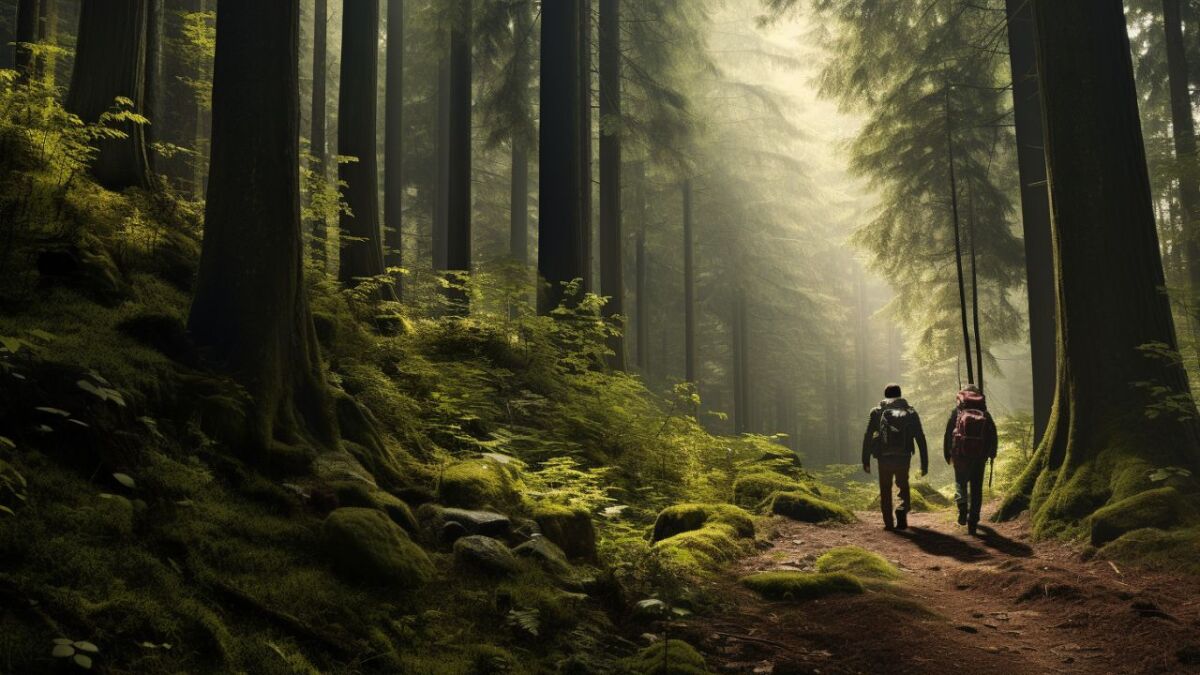
Through these techniques, I have learned to accept fear and uncertainties and still act calmly and decisively.
Remember:
Being brave doesn't mean not being afraid - being brave means acting despite the fear.
Make decisions when every second counts in survival
The situation is critical, your pulse is racing, now it counts.
Imagine you are standing at a fork in the road and have to decide which direction to go - your instinct is needed, but also clear logic.
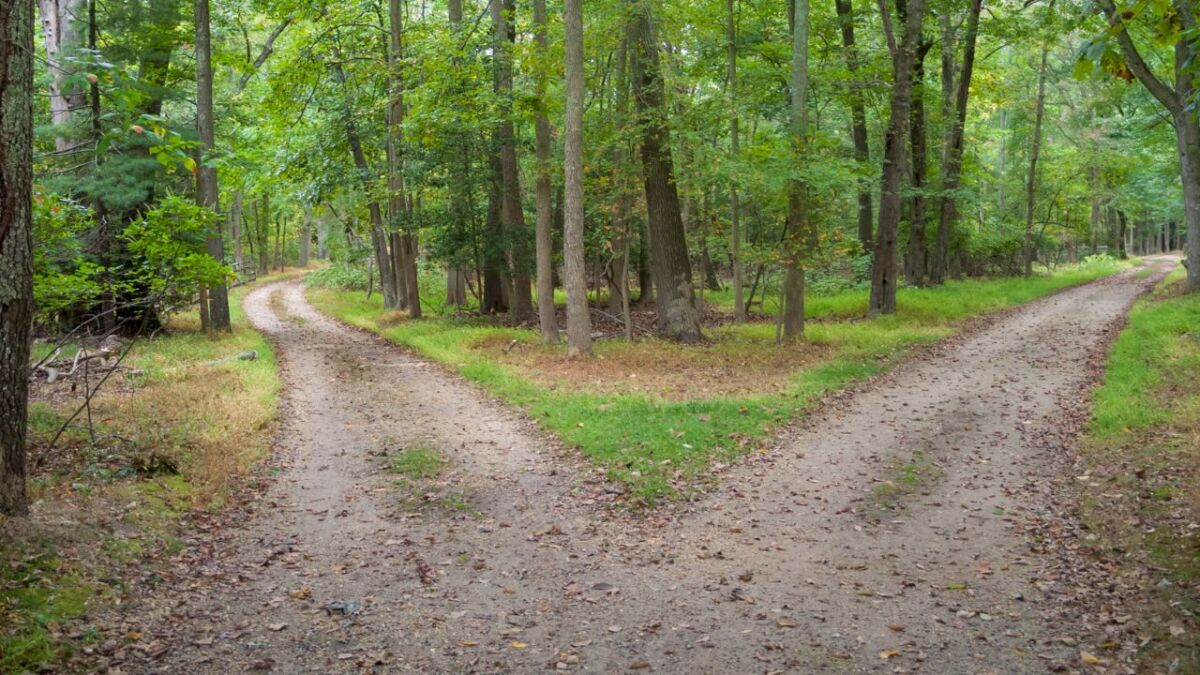
In critical moments, a single decision can significantly influence the outcome.
My Experience: Decision Under Pressure
I remember a trip to the mountains when a storm was approaching. Retreat or continue? I had to quickly assess all the facts and decide - for safety's sake. Clear techniques for decision-making can help with this.
List of possible options
- Always have a Plan B.
- Consider pros and cons - quick weighing is better than no decision.
Risk check
- What is the lesser evil?
- How can the consequences of a wrong decision be minimized?
Intuition and Experience
- Trust your gut feeling - often you know more than you think.
- Draw lessons from experiences and let them influence your decision.
Read also
26 Survival Myths That Can Cost You Your Life - Many common survival tricks from Hollywood are myths. This guide reveals the truth. With this, you'll be on the safe side in the wilderness.
Case Studies as a Compass
Based on real survival stories, I constantly learn how critical decisions are made.
People who mastered extreme situations had one thing in common:
Acting clearly and decisively moves you forward.
Simple techniques for clear decisions:
- Breathe deeply - it gives you this moment of calm.
- Situation analysis - look at things from different perspectives.
- Prioritization - what is the most important thing right now?
Given difficult decisions, I apply these steps and find them consistently helpful.
They help me to have a clear mind and a determined attitude - regardless of what challenge lies ahead of me.
Read also
The 7 most important survival tips for survival - Survival tips are vital. With the 7 basics mentioned below, you will learn how to build a shelter and ensure basic supplies.
The Power of Hope - Keeping the Summit in Sight
Why Hope is Your Strongest Ally
Do you know the feeling when the clouds part for a moment and you catch a clear view of the summit?
This sight awakens something in you: hope.
And believe me, in the wilderness, where every step and every decision counts, hope is a powerful tool.
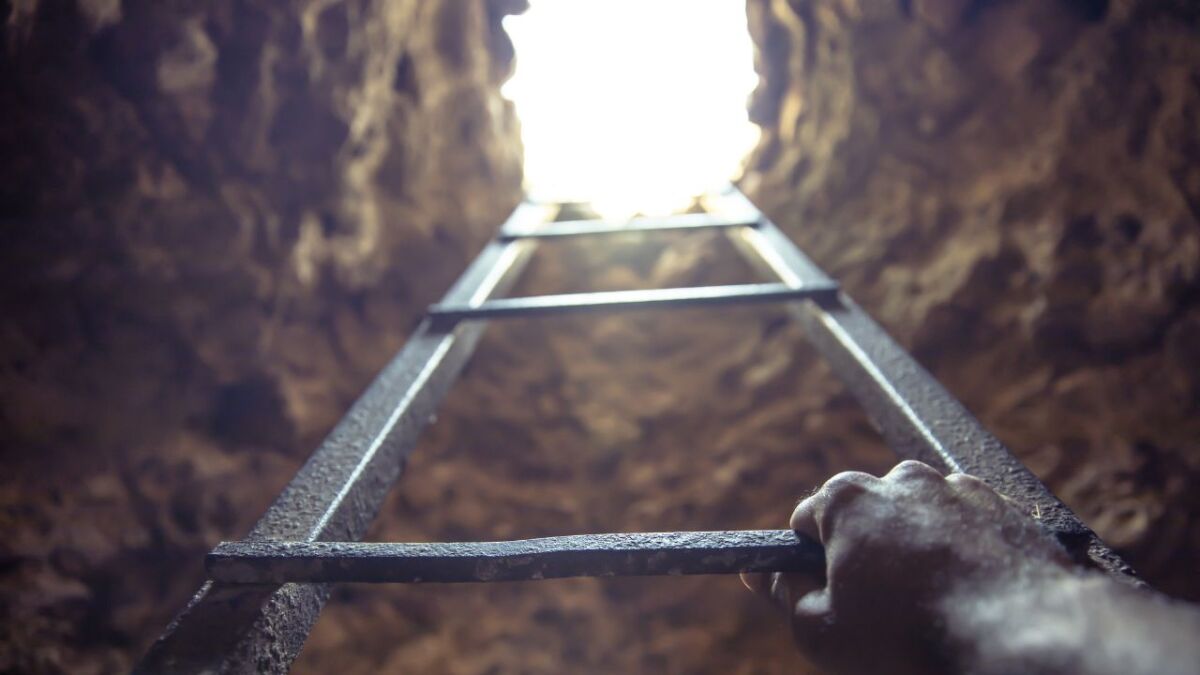
My Experience: Hope as a Guide
I will never forget the time I got completely off track during a hike. With every step that led me deeper into the unknown, my confidence dwindled.
But when I thought about my intention - to experience nature and find my way back on my own - hope sprouted.
This inner certainty that there is a way, even if it is not immediately visible.
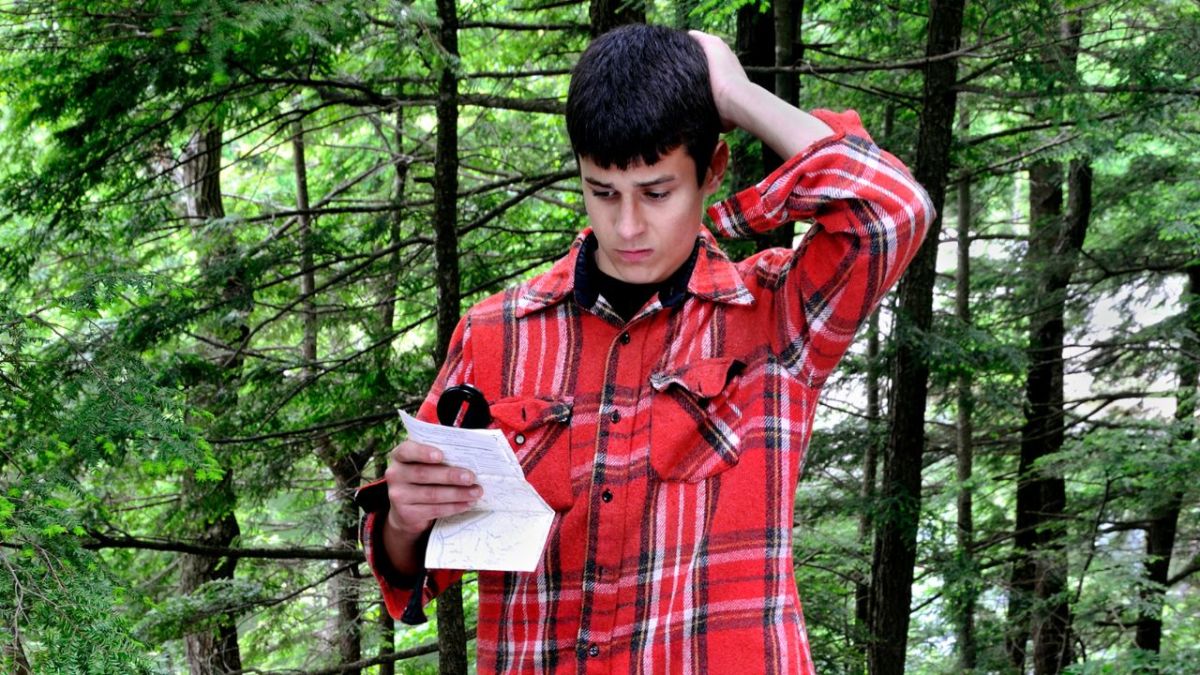
Practices that keep you entertained:
- Set small, achievable goals. Every small success is a victory.
- Remember past successes. They are proof that you can do it.
- Hold on to your "why". The big picture gives you the strength to keep going.
Stories that strengthen the heart
The stories of people who have fought against adverse circumstances and won always inspire me.
You are like beacons, showing me that even in dark hours, a small spark of hope can be my most powerful ally.
Do you remember the sailor Tim Shaddock, who survived 90 days in a lifeboat? Or the student who survived 9 days in a car and only ate bars and melted snow? Their stories tell of the tremendous impact of hope and positivity.
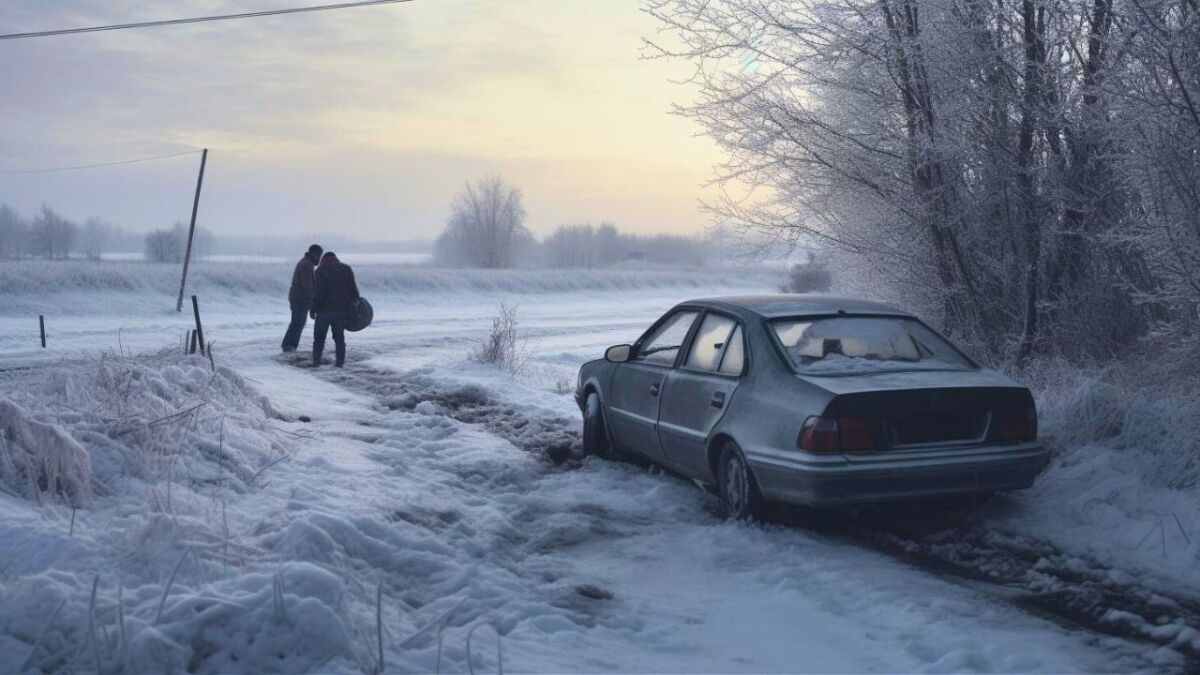
How to harness your energy
- Affirmations: Repeat positive affirmations that nourish your hope.
- Visualization: See yourself already at your goal in your imagination.
- Gratitude List: Write down what you are grateful for - it makes you resilient.
In the moments when you are alone and nature around you seems all-powerful, hope is the light that illuminates the darkness.
The thoughts of my loved ones and the goal of returning home give me the necessary push when my legs no longer want to.
And I want to share this positive attitude with you.
Because if you carry faith within you, no mountain can be too high, no river too wide, and no wilderness too lonely.
Unity in the Wilderness - Group Dynamics and Leadership
Team spirit - or when one stands up for all
You stand there, surrounded by your group, each bringing different strengths and fears. Once you leave civilization behind, only one thing matters: unity.
I have learned that in groups, every individual counts, but the right leadership is the decisive factor.
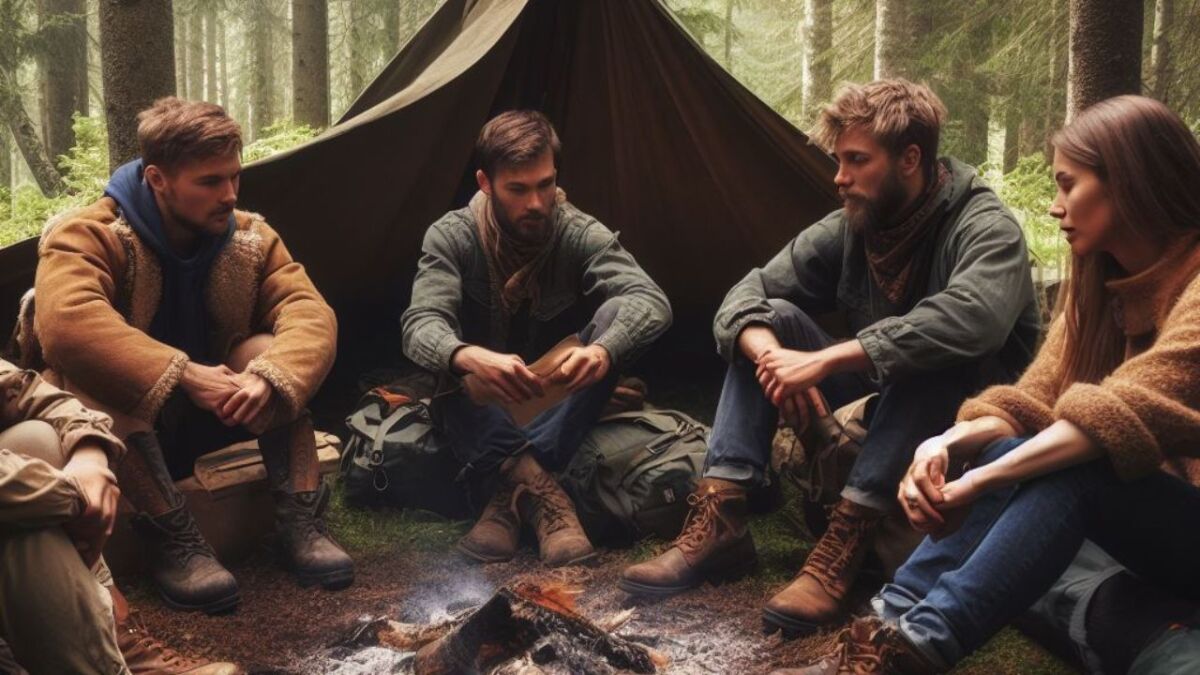
My experience as part of the pack
During an expedition through rough terrain, I experienced how important good team dynamics are.
A member camped for the first time in their life - a challenge for all of us. But with clear roles and mutual trust, we managed it together.
Leadership qualities that matter:
- Keep an overview: Maintain clarity even in chaos.
- Communication: Make clear statements, enable listening.
- Motivation: Don't let courage sink, create a positive atmosphere.
Communication under stress - The A & O
In a critical situation, it is essential to stay calm and communicate information clearly.
I always try to choose my words carefully to avoid misunderstandings and prevent panic.
Read also
Guide: Successfully camping with a large group and organizing it - The more people camping, the greater the effort to organize an outdoor trip. Here are the top 5 tips for camping with a large group.
Community instead of loneliness
Even in the greatest solitude, a group of like-minded people can be a fortress of strength.
The togetherness, sharing of burdens and joys - that's what makes the difference in challenging times.
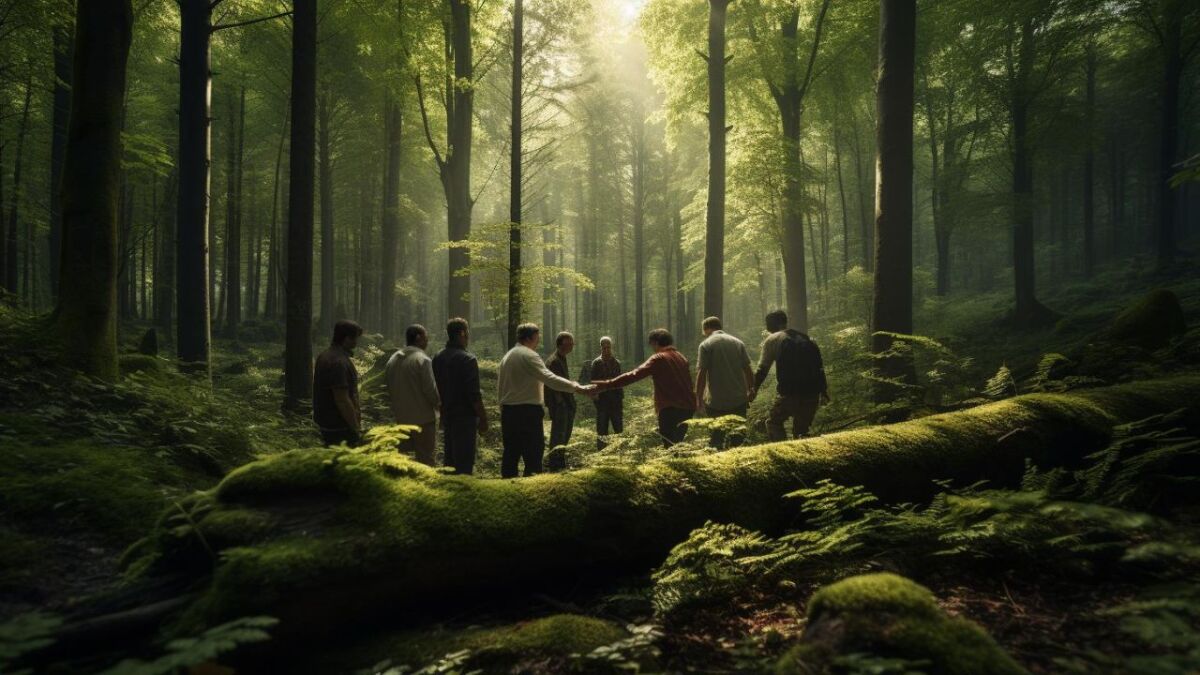
Strategies for successful groups:
- Role distribution: Everyone should know and fulfill their task.
- Decision-making: Consult and vote together.
- Conflict management: Recognize and resolve tensions early.
The fact is: Shared adventures create an invisible bond that is stronger than the sturdiest rope.
When I had to seek shelter with a group during a sudden thunderstorm, it was this sense of unity that kept us alert and able to take action.
Everyone contributed their part, brought in ideas, and helped out - that's how we mastered the challenge and emerged stronger from it.
Alone with the Stars - Dealing with Isolation and Loneliness
When you are alone outside, the silence becomes an echo of your thoughts. I have experienced it myself - pure stress.
The loneliness was oppressive after days, as I sat by the campfire and the sounds of the wilderness were the only companions.
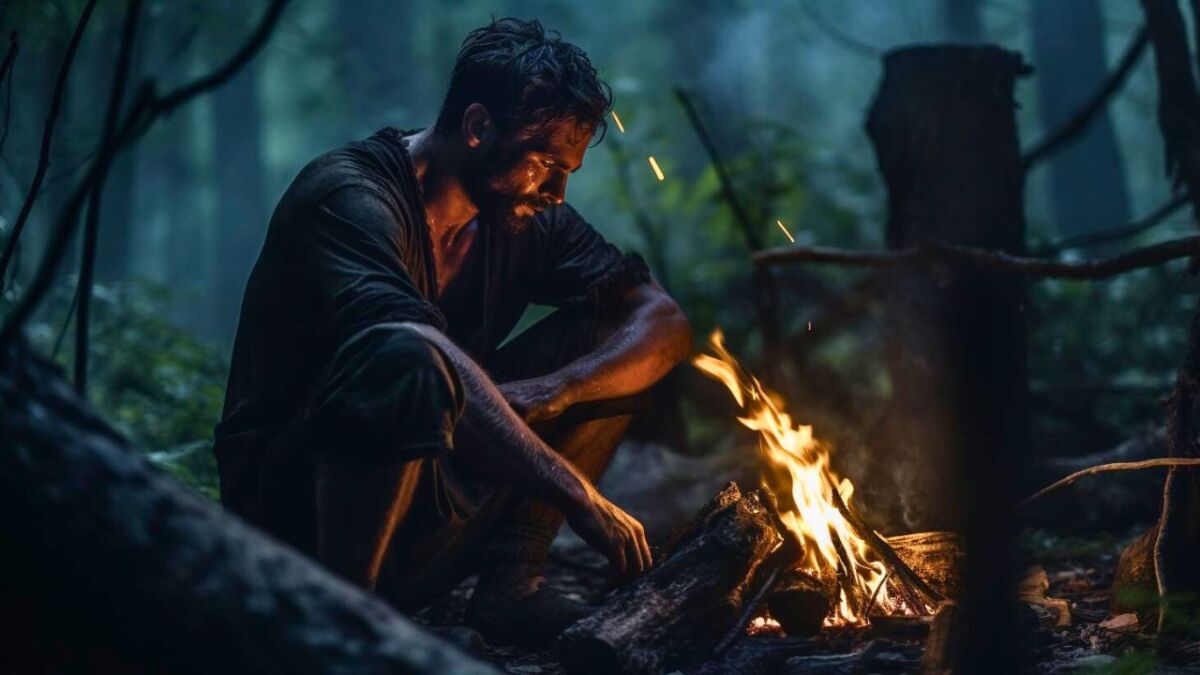
Isolation not only tests our ability to self-sustain, but also our ability to deal with our inner self.
Taming the Inner Voice
In seclusion, thoughts can become louder, doubts can swell.
But here's a secret: You can learn to use and develop your inner voice to your advantage.
Steps you can take:
- Talk to yourself: Yes, talk to yourself - it's a sign of mental strength.
- Create routines: They are like anchor points in your daily routine and provide structure.
- Set goals: Achieving a small goal every day strengthens the sense of self-efficacy.
And remember, sometimes it's all about the perspective:
What initially seems like a burden can turn out to be a blessing.
The silence can be surprisingly healing and offer you space for self-reflection. Learn to appreciate and make use of this stillness.
The forest whispers slowly
I have learned over the course of my outdoor years to listen to the whispering voices of nature.
The wind in the trees, the sound of water splashing - that can be calming and give you the feeling of being a part of something greater.
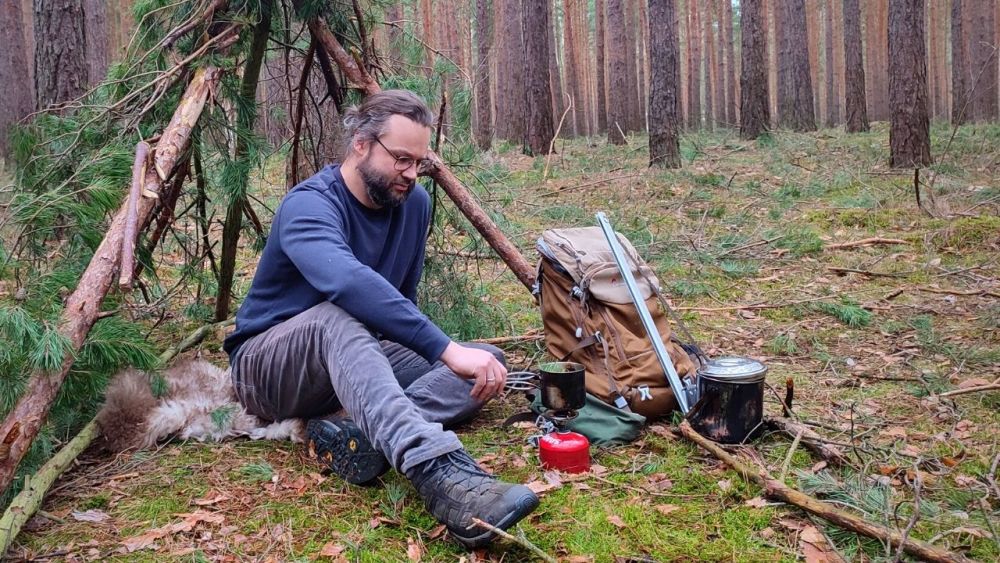
Proven strategies against loneliness can include:
- Enjoying nature: Activities like bird watching or plant identification keep you in the moment and distract you.
- Relaxation exercises: Yoga, stretching, or strength training keep your body flexible and your mind clear.
- Creative activities: Carving (or drawing and writing, if possible) are not only pastimes, but also self-expression.
The isolation in the wilderness enhances your self-awareness and makes you more familiar with your true self.
From this, I try to draw strength, optimism, and a deep gratitude for every moment I get to spend in the great outdoors.
After the Storm - When the Silence Sets in After Survival
"Out of the wilderness, into life" - sounds simple, but anyone who has ever felt their limits out there knows that the return can leave a profound impact.
I speak from experience:
After seven intense days of wilderness living in seclusion, the familiar world suddenly felt foreign. I appreciated the little things more and saw many things in a different light.
But it wasn't just positive experiences: The noise, the smell, the light, the hustle and bustle, and the stress of modern life had a strong impact on my mood.
Psychological Aftermath - More than just memories
Imagine you are back home after a real survival situation, but the nights are filled with dreams of your experiences.
Survival situations can have long-term effects. Some soldiers from survival situations even report post-traumatic stress disorders.
Strategies to process the experience:
- Share your experiences: Talking helps. With friends, family, a group of like-minded people, a coach, a therapist.
- Write it down: Sometimes the written word reveals what the mouth cannot say. Keeping a diary helps.
- Take a break: Rest is essential. Your body and mind have been through a lot.

The Way Back - Step by Step
It is important to keep an eye on one's own feelings and not to ignore them after intense experiences.
Even if you are physically back in everyday life, give your soul time to follow you.
When professional help is important
And there are moments when friends or family can and should not be the only support.
If the shadows become too long and the burden becomes too heavy, do not hesitate to seek professional help. A therapist or coach can provide you with tools to confront these experiences.

Signs that you might need help:
- Sleep disorders: When nights become a battle.
- Irritability: Small things lead to unexpected outbursts.
- Social withdrawal: When the company of others becomes torture.
The path to healing can be long, but remember - you are not alone. And you are okay just the way you are.
Every story of overcoming begins with the courage to take the first step.
Continuing Learning and Growing - Resources for the Survival Artist from Articles, Books to Videos
The adventure is over, but the hunger for knowledge remains. Our world continues to spin, and new knowledge shapes the art of survival every day.
For me, it is essential to stay up to date, sharpen my skills, and remain curious.
Books - The Wisdom of the Wilderness in Your Hands
Books are my loyal companions - sources of information and inspiration at the same time. I have a library full of adventures and wisdom that I consult again and again. They teach me everything from botany to survival techniques.
Which book?
- "Deep Survival: Who Lives, Who Dies, and Why" by Laurence Gonzales: This book offers a fascinating analysis of how and why people survive in extreme situations.
- "The Unthinkable: Who Survives When Disaster Strikes - and Why" by Amanda Ripley: An examination of human reactions in disaster situations, providing valuable insights into survival psychology.
- "Survival Psychology" by John Leach: A detailed work that explores the psychological aspects of survival in extreme conditions.
Technical Article
- Articles from the "Journal of Wilderness Medicine" that deal with psychological aspects of wilderness survival and first aid.
- Research papers and articles from recognized institutions such as the "American Psychological Association" (APA) that focus on stress management and resilience in extreme situations.
Online Courses - Knowledge at the Click of a Button
The internet is a gateway to infinite knowledge, and online courses have helped me expand my skills.
Whether it's about first aid or the art of making fire - the variety is endless.
My top sources for online learning:
- Outdoor forums and communities: Exchange with people who can hear the grass grow. Here we share our experiences and learn from each other - real stories, real tips.
- YouTube channels: How to tie a rope while a squirrel watches? These channels show you - step by step, straight from those who are at home in the forest. Here you can find my channel.
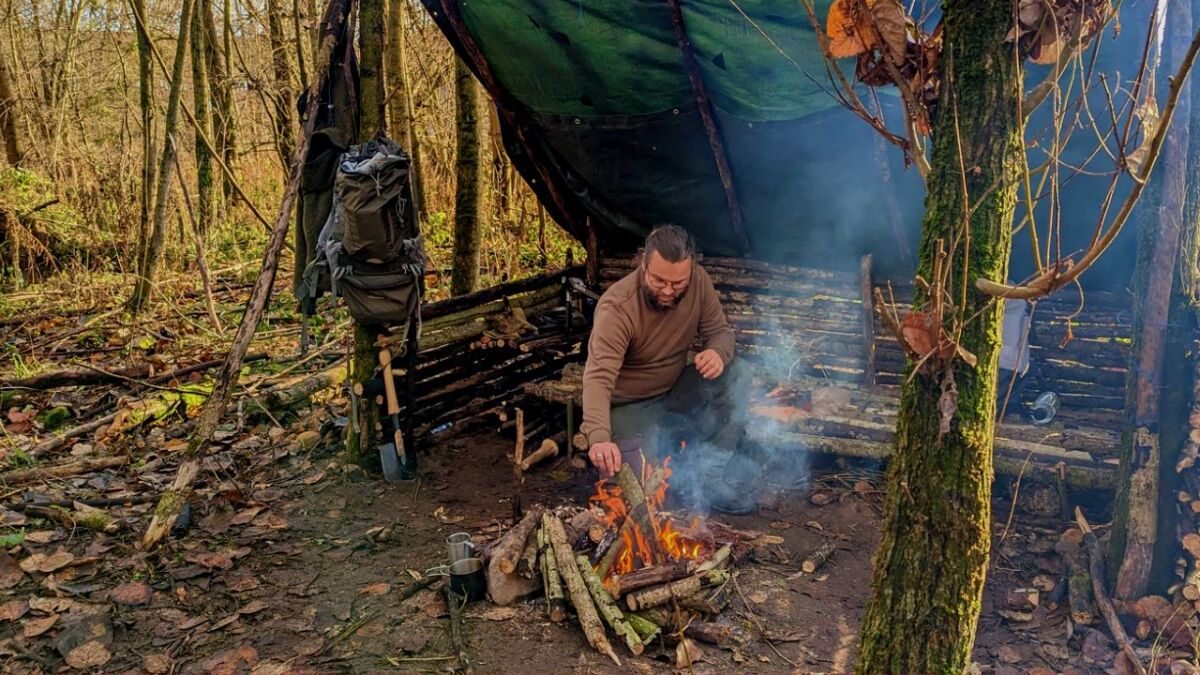
The knowledge is out there - you just have to reach out.
Use resources wisely, and most importantly: go out and apply what you learn.
It's the real experience that counts because even the smallest experience can save you in a real survival scenario.

Sources for the guide
https://www.bps.org.uk/psychologist/survival-psychology-wont-live
https://www.psychologytoday.com/intl/blog/evolution-of-the-self/202310/your-survival-iq-how-calm-can-you-stay-in-a-crisis

Author of the guide
Martin Gebhardt
Hey, I'm Martin. On my blog, you will learn the basics and numerous details about living in the wild. I think survival, bushcraft and the good life in nature are the keys to happiness. Find me here on Instagram or on YouTube. You can find more about my mission on the About Me page.
Was this guide helpful?
14 people found this guide helpful.
5.00 out of 5 points (14 Ratings)
Comments (0)
This post may contain affiliate links. So if you click on the links and make a purchase, I will receive a small commission at no additional cost to you. Click here, to learn more about it.


